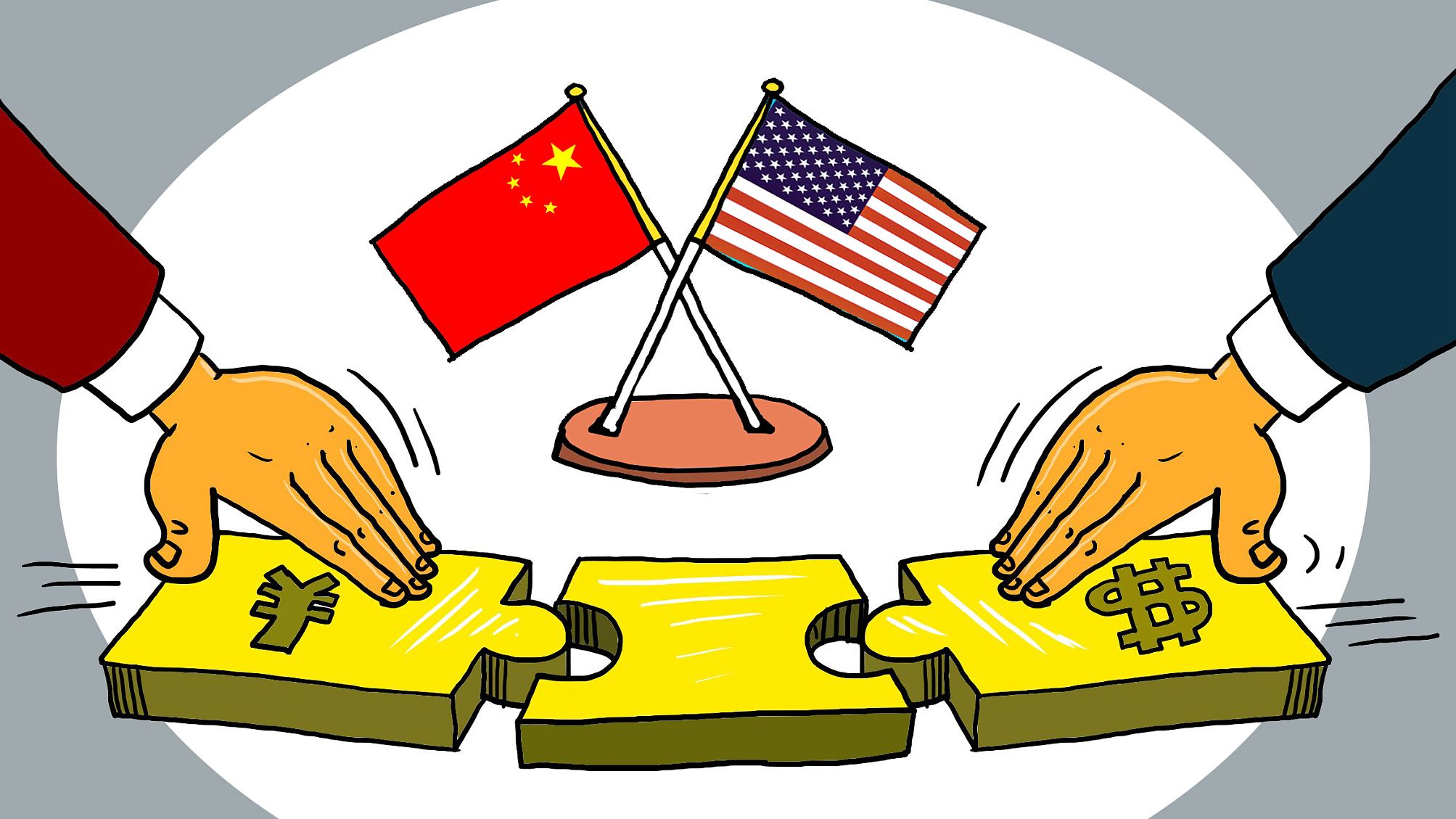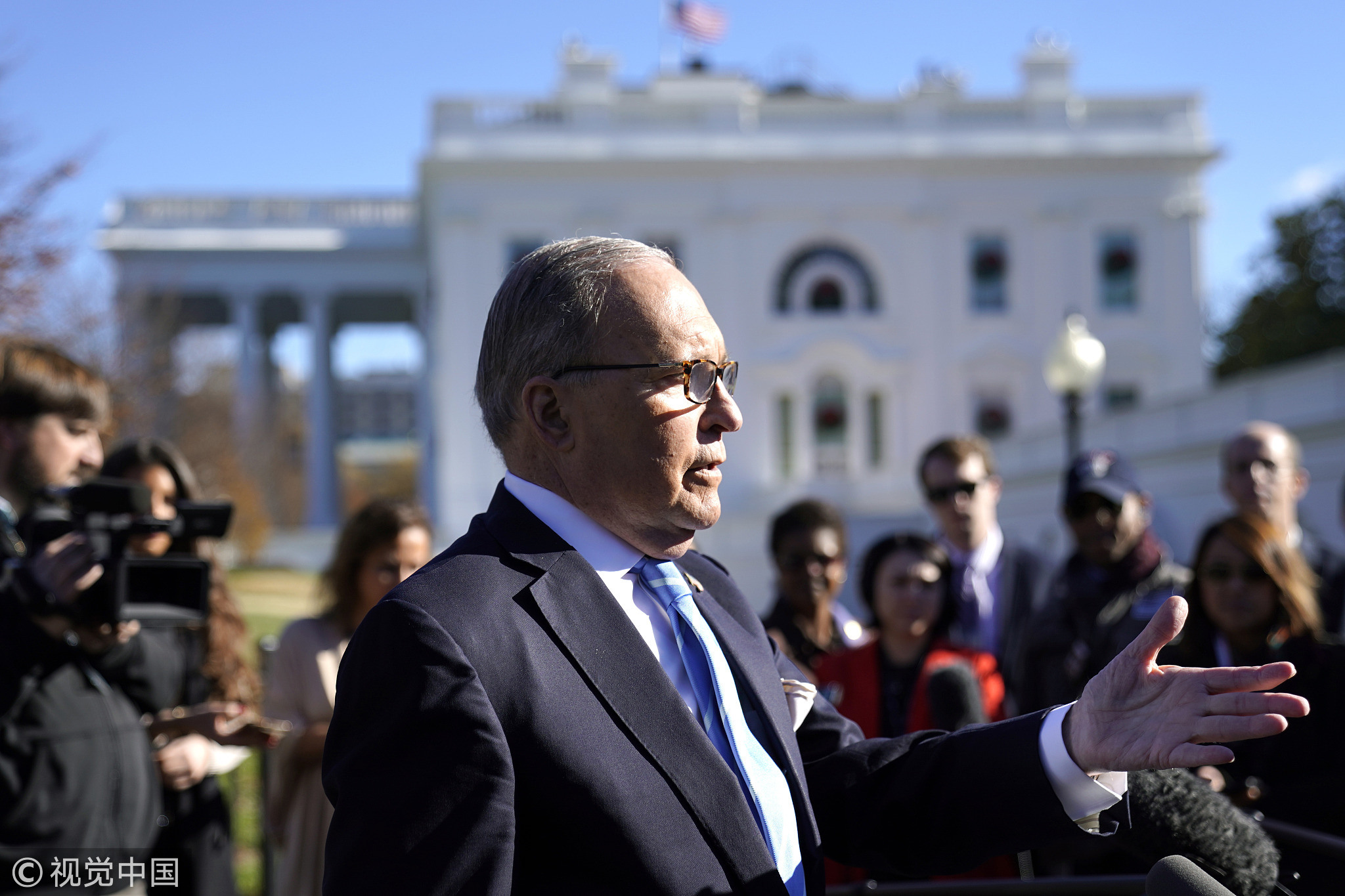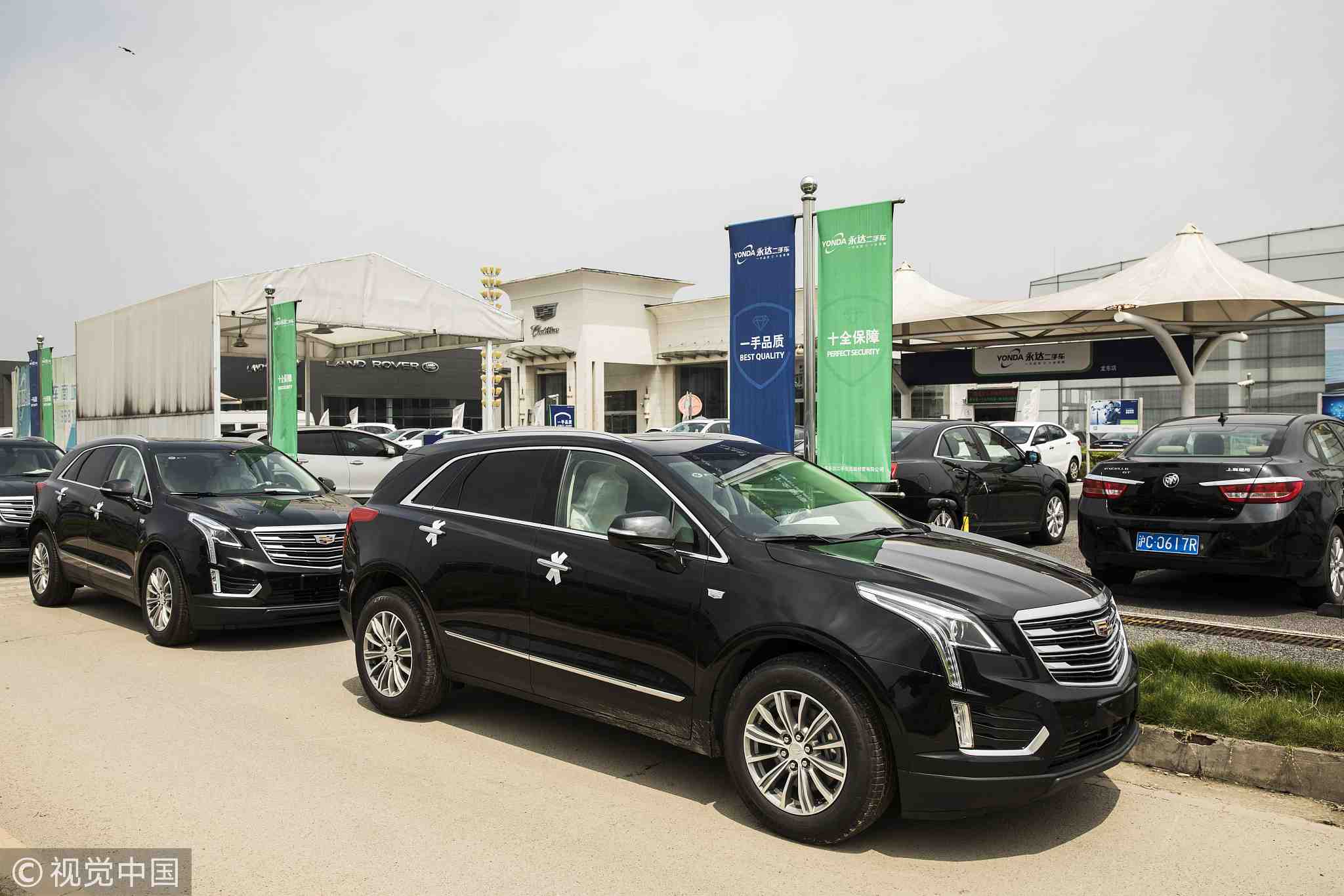
Opinions
13:28, 15-Dec-2018
Opinion: China shows goodwill in ending trade war
Updated
12:21, 18-Dec-2018
Ken Moak

Editor's Note: Ken Moak, the co-author of the 2015 book "China's Economic Rise and Its Global Impact," taught economic theory, public policy and globalization at the university level for 33 years. This article reflects the author's opinion, and not necessarily the views of CGTN.
China is living up to the 90-day truce that President Xi Jinping and U.S. President Donald Trump reached during their meeting in Argentina on December 1. In the last few days, it purchased over 1.5 million metric tons of soybeans and suspended an additional 25-percent tariff on U.S.-made vehicles and parts and 5-percent duty on 67 other auto items for 90 days, from January 1 to March 31 in 2019.
The 3-month period reflects the duration of the tariff. Should an agreement not be reached by the end of the truce period, the trade war would resume or even escalate. Trump vows to raise the 10-percent tariff on the 200 billion U.S. dollars' worth of Chinese “imports” to 25 percent and might impose duties on another 267 billion U.S. dollars of products from China.
China will undoubtedly retaliate, rescinding the tariff suspension on U.S.-made vehicles and imposing other measures.
Ending U.S.-China trade war is crucial
Ending the trade war is crucial, particularly for Trump. U.S. stock market prices dived in large part because most of the “imports” are U.S. goods made in China. In this regard, the tariffs amount to raising taxes on U.S. industrial and consumer goods, leading to higher production costs and final product prices.

Director of the U.S.National Economic Council Larry Kudlow speaks to the media about the U.S. trade war with China outside the White House in Washington, D.C., December 3, 2018. /VCG Photo
Director of the U.S.National Economic Council Larry Kudlow speaks to the media about the U.S. trade war with China outside the White House in Washington, D.C., December 3, 2018. /VCG Photo
The response from U.S. businesses and consumers were harsh and swift, reducing investment spending and turning the House of Representatives over to the control of Democrats. Indeed, Trump lost most of the Rust-Belt and food-belt states that elected him in 2016.
Chinese factories, particularly those set up to make or assemble goods – electronics, parts, toys, etc. – destined for the U.S. market, would downsize or even close because it might be difficult to find alternative markets.
Because of an increasingly interdependent and interconnected world, continuing or escalating the trade war could put the global economy and security at risk.
Moreover, the Mueller investigation into allegations that Trump's campaign conspired with Russia to influence the 2016 presidential election has heightened with the indictment of Trump's former lawyer Michael Cohen. The Democrat-controlled House of Representatives would most likely investigate Trump's alleged tax issues and other questionable acts.
Last but not least, the presidential election cycle is just around the corner. Should the economy suffer because of his trade war, Trump's re-election for a second term could fizzle.
Thus, he needs a “good” trade deal with China. Perhaps as a way to improve his re-election fortunes and getting a good deal from China, Trump indicated that he would intervene in the Meng Wanzhou extradition case if it would serve national security interests or help close a trade deal with China.
Why China suspends additional tariffs on U.S.-made autos and parts
President Xi Jinping is right in saying that trade wars hurt everyone. He has history on his side. For example, it was partly due to protectionism that turned a recession into the Great Depression in the 1930s. In passing the Smoot-Hawley Tariff Act in 1930, the U.S. hiked tariffs, forcing trade partners to engage in tit-for-tat exchanges, culminating in further declines in economic activities.

General Motors Co. (GM) Cadillac sport utility vehicles (SUV) sit parked outside a car dealership in Shanghai, China, July 8, 2018. /VCG Photo
General Motors Co. (GM) Cadillac sport utility vehicles (SUV) sit parked outside a car dealership in Shanghai, China, July 8, 2018. /VCG Photo
The U.S.-China trade war might create a bigger problem for the world than the Great Depression because the economies are much larger and more interconnected than those of the 1930s.
It is perhaps in this context that China extends the “olive branch,” not necessarily a sign that it is losing the trade war to the U.S.
U.S. response to China's gesture
It would be a mistake for the U.S. to view China's 90-day suspension of additional tariffs on its automobiles and parts as a sign of weakness and terminate the talks unless the country “capitulates.” China would be harmed, but it does have huge economic and financial war chests to cushion the economy from crashing.
One, the Chinese government is one of, if not the richest, in the world, having state-owned banks and enterprises making huge profits, and possessing over 3 trillion U.S. dollars in foreign reserves, just to list a few.
China also has a huge domestic market with strong purchasing power. With around 1.4 billion consumers, most of whom have little debt, they could supplant the U.S. market. Consumption, in fact, has increased over 7 percent yearly.
Last but not least, the Belt and Road Initiative (BRI) would be another outlet for China's industrial capacity. Trade between China and the over 80 participating countries reached over 5 trillion U.S. dollars in the past five years, and the number will grow with more and more countries joining the BRI.
However, whether the U.S. will take a more realistic approach in negotiating a trade arrangement to end the trade war is uncertain. There are some in the U.S. government and groups with the ability to influence policies to want nothing less than total Chinese “capitulation” on U.S. demands. As it is indicated in past articles, the trade war is about China's rise, particularly in the economic and technological realms.
(If you want to contribute and have specific expertise, please contact us at opinions@cgtn.com.)

SITEMAP
Copyright © 2018 CGTN. Beijing ICP prepared NO.16065310-3
Copyright © 2018 CGTN. Beijing ICP prepared NO.16065310-3